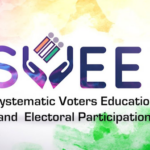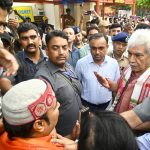The formation of a government is not merely a political event; it is a reflection of the collective will and choices of the electorate. In democratic societies, voting serves as the cornerstone of governance, empowering citizens to shape the political landscape and determine the trajectory of their nation or region. This article delves into the importance and responsibility of voters in government formation, emphasizing informed decision-making, evaluation of past performance, consideration of long-term goals, and the broader impact of their choices.
The Essence of Voting: Evaluating Past Performance
At its core, voting is a mechanism for evaluating the past performance of politicians and political parties. It serves as a retrospective assessment of their actions, policies, and governance record during their tenure. Voters have the responsibility to scrutinize this track record critically, analyzing achievements, failures, promises kept, and unfulfilled commitments. By doing so, voters can make informed decisions based on tangible outcomes rather than rhetoric or promises.
The Pitfalls of Re-Electing Poor Performers
One of the gravest mistakes a voter can make is re-electing a politician or political party with a poor track record. This perpetuates mediocrity, inefficiency, and lack of accountability in governance. It sends a message that subpar performance is acceptable, undermining the principles of democratic accountability and responsible governance. Therefore, voters bear the responsibility of holding incumbents accountable and demanding excellence in public service.
Long-term vision: Beyond immediate concerns
While immediate concerns such as economy, healthcare, and security are pivotal in voting decisions, voters must also consider long-term goals and aspirations. A myopic approach focused solely on short-term gains can lead to detrimental consequences in the future. Issues like sustainable development, environmental conservation, social equity, and global cooperation require a forward-looking perspective from both voters and elected representatives.
The power of collective decision-making
The formation of any government is a direct result of the collective decision-making process exercised by voters. Each vote carries significant weight in shaping the political landscape and determining the composition of legislative bodies and executive leadership. This power underscores the importance of every voter’s contribution, regardless of demographic, socioeconomic status, or political affiliation.
Responsibility and Civic Duty
Voting is not just a right; it is a civic duty and a responsibility. It is a manifestation of active citizenship and civic engagement, signaling a commitment to participate in the democratic process. This responsibility extends beyond personal interests to encompass the well-being and future of society as a whole. Every voter has a stake in the governance of their nation or region and must exercise their right with due diligence and conscientiousness.
Impact on governance and policies
The choices made by voters directly influence governance dynamics and policy direction. Elected representatives, cognizant of voter expectations and preferences, shape their agendas and legislative priorities accordingly. Therefore, voters wield significant influence in shaping public policies, legislative frameworks, budgetary allocations, and overall governance ethos.
The ripple effect of wrong choices
A wrong choice by a voter can have far-reaching repercussions, impacting not only the individual but also the entire region or country. It can lead to governance inefficiency, policy paralysis, social unrest, economic downturns, and erosion of democratic values. The consequences of uninformed or irresponsible voting reverberate across generations, highlighting the enduring impact of electoral decisions.
Informed and responsible voting practices
In light of these considerations, informed and responsible voting practices are imperative. This entails researching candidates’ backgrounds, platforms, and policy positions, seeking diverse perspectives, fact-checking information, and critically evaluating campaign rhetoric. Voters should prioritize substance over symbolism, competence over charisma, and integrity over expediency.
The role of education and awareness
Education and awareness play pivotal roles in fostering informed and responsible voting. Civic education programs, media literacy initiatives, electoral debates, and public forums facilitate dialogue, exchange of ideas, and informed decision-making among voters. Empowered with knowledge and awareness, voters can navigate complex political landscapes and make choices aligned with their values and aspirations.
Empowering voters for a better future
In conclusion, the importance and responsibility of voters in government formation cannot be overstated. Voting is not a passive act but a proactive exercise of citizenship, shaping the present and future trajectory of governance. Voters must evaluate past performance, consider long-term goals, and prioritize the common good over narrow interests. Informed, responsible, and engaged voters are the bedrock of a vibrant democracy, driving positive change and progress for generations to come.
(The author is a Social Activist, Politcal Analyst & National TV debater. He can be reached on @[email protected])








